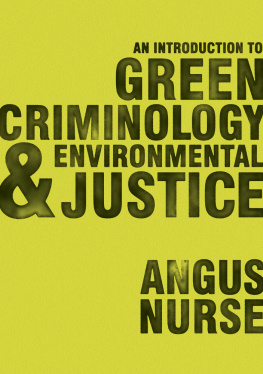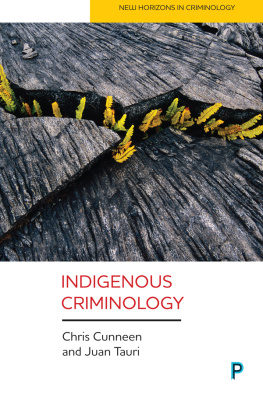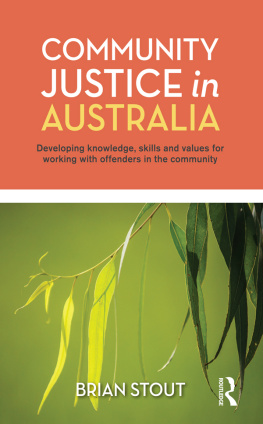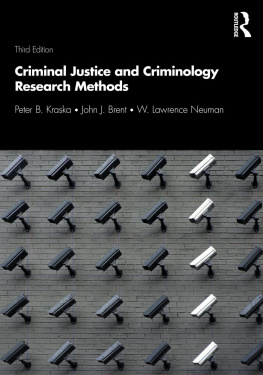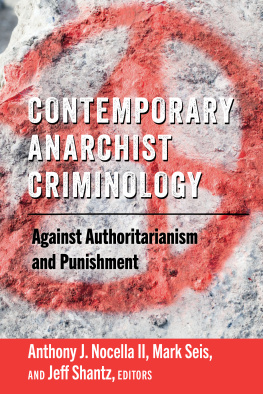First published in Great Britain in 2015 by
Policy Press University of Bristol 1-9 Old Park Hill Bristol BS2 8BB UK Tel +44 (0)117 954 5940 e-mail
North American office: Policy Press c/o The University of Chicago Press 1427 East 60th Street Chicago, IL 60637, USA t: +1 773 702 7700 f: +1 773-702-9756 e:
Policy Press 2015
British Library Cataloguing in Publication Data
A catalogue record for this book is available from the British Library
Library of Congress Cataloging-in-Publication Data
A catalog record for this book has been requested
ISBN 978-1-4473-2063-0 ePub
ISBN 978-1-4473-2064-7 Kindle
The right of Malcolm Cowburn, Marian Duggan, Anne Robinson and Paul Senior to be identified as editors of this work has been asserted by them in accordance with the 1988 Copyright, Designs and Patents Act.
All rights reserved: no part of this publication may be reproduced, stored in a retrieval system, or transmitted in any form or by any means, electronic, mechanical, photocopying, recording, or otherwise without the prior permission of Policy Press.
The statements and opinions contained within this publication are solely those of the editors and contributors and not of the University of Bristol or Policy Press. The University of Bristol and Policy Press disclaim responsibility for any injury to persons or property resulting from any material published in this publication.
Policy Press works to counter discrimination on grounds of gender, race, disability, age and sexuality.
Cover design by Policy Press
Front cover image: istock.com
Readers Guide
This book has been optimised for PDA.
Tables may have been presented to accommodate this devices limitations.
Image presentation is limited by this devices limitations.
A brief introduction
Malcolm Cowburn
This book is about values; values in action in the making of theory, the shaping of research and the implementation of policies in practice. Robinson (2011, p 4) describes three usages of the word value:
1. Used as a verb, to value means to esteem or hold in regard.
2. Value as a noun refers to the worth, merit or importance placed on, for instance, a particular characteristic or quality.
3. Values are also a set of normative beliefs or standards held by a social group.
This book incorporates all of these usages. The first two usages point to estimations, mostly public estimations, of the social worth of criminology and community justice; to use the words first coined by Carrabine et al (2000), they point to the nature of public criminology. However, in line with many of the chapters in this book, the issues of social worth and public valuation are immediately problematic and raise issues of whose evaluation of what. To be valued as a resource for governmental policy may be to be dismissed as valueless by those who seek to critique government policy and practices. Loader and Sparks (2011) have explored in depth the nuances and contradictions innate in the role of the public intellectual. These issues point directly to the third usage highlighted earlier, the problem of allegiance (or not), first highlighted by Becker (1967) in his article Whose side are we on? This article has provoked and continues to stimulate wide-ranging discussion in the social sciences since its publication (see, eg, Gouldner, 1975; Hammersley and Gomm, 2000; Liebling, 2001; Delamont, 2002; Cohen, 2011). The authors in this volume add their own distinctive contributions to this debate.
The idea for this book emerged from a group of academic staff in one university where criminology is practised (ie taught and researched at theoretical and applied levels); this core group was made up of experienced academics and people new to working in higher education. Some of the group had much experience of applied work in the criminal justice system and some had recently completed research degrees. Experienced and inexperienced writers offered to work together to produce a book that considered the value(s) of criminology and community justice. At this point, The Policy Press became involved and the scope of the book grew and a wider range of authors was recruited. In order to develop coherence without imposing conformity, contributors were asked to reflect on Howard Beckers influential 1967 article.
The present collection is unique because it considers Beckers question from three related perspectives: theory, criminal justice practices, and research and policy. Stan Cohen has noted that the interrelationship of these three areas has been, and is, important to the development of criminological knowledge, because this knowledge is situated not just or even primarily, in the pure academic world, but in the applied domain of the states crime control apparatus (Cohen, 1988, p 67, cited in Loader and Sparks, 2011, p 8). Thus, theorising, research and practices are all inevitably linked to wider political arenas. Stan Cohen died earlier this year (2013), but for over 40 years, he was concerned with the issues of allegiances and rights in criminological practice. Moreover, his work as a social worker and in the human rights movement ensured that this concern was theoretical, political and practical.
These chapters contribute to a developing reflexivity that is becoming increasingly common within criminal justice practice (Robinson, 2011) and criminological literature (Loader and Sparks, 2011; Turner, 2013), and a key part of this reflexivity is to recognise that research, policy and practice are all imbued with values, and that the language used inevitably carries an implicit (e)valuation of people and their actions. The contributions in this book variously reflect on the value(s) of criminology and community justice. In the first section, issues of values and how they relate to and are embodied in epistemology are explored. The second section is concerned with exploring issues in relation to practice or practices; and the final section of this book addresses values in the practice of research and policymaking.
References
Becker, H. (1967) Whose side are we on?, Social Problems, vol 14, no 3, pp 23447.
Carrabine, E., Lee, M. and South, N. (2000) Social wrongs and human rights in late modern Britain: social exclusion, crime control and prospects for a public criminology,



